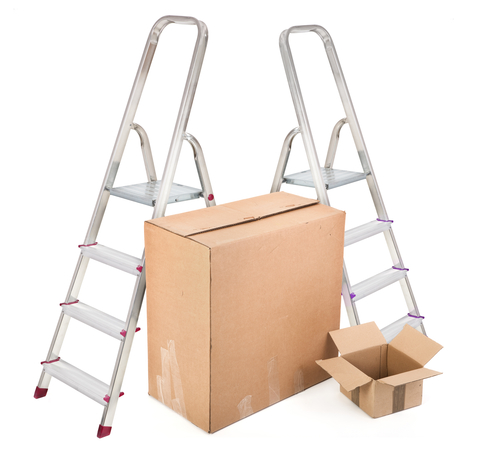It’s Simple by Erika Moyer

It’s amazing when you go into a seemingly tedious project for one purpose, and then come out on the other end of it with a changed view of life. That is exactly what has happened to me in the last few weeks.
My house is up for sale, and as part of preparations, I went through and staged it. It has truly been an eye-opening experience. We have been living here for only four years, but the amount of stuff we have accumulated is scary and in all honesty, excessive. As I went through each room, packing up all the items deemed unnecessary for daily living, all I could think is, ‘Why do I have all this stuff? Where did it come from?’
At the end of the day, I had successfully filled my basement and huge shed with boxes. I then forgot about it and focused on the business of selling my house. The change happened when a couple of weeks later I realized that I couldn’t remember what I had packed away. Right now, at this very moment, I have approximately 50 boxes of random things in my house and for the life of me, I cannot remember what is in them. What’s more is that I started looking around my house with new eyes and realized that not only did I obviously not need whatever was in those 50 boxes, but I also didn’t need half of what I still had hanging around unpacked.
How did this happen? How did we accumulate a houseful of things that we don’t need or use and for the most part do not hold any true sentimental value? Looking within, I came to the conclusion that, in a way, we equate having an abundance of things with having an abundance of wealth and happiness. The funny thing is that the complete opposite is true. Sure, when you buy something shiny and new you may experience a happy high that lasts anywhere from a few hours to a few weeks, but it is not the lasting kind of happiness that fulfills us long term. The truth is that the more things you’ve accumulated, the more cleaning and picking up you have to do, the more money you have to earn to keep up with living in excess, and as a result the less time you have for the important things like following dreams and spending time with your loved ones.
I was hit hard with the minimalist bug. It was a slow start. I have a baby and a 6-year-old that I homeschool. As you can imagine, time is not something I have a lot of. I started with my junk drawer – you know – that one drawer in your kitchen or office where you stick everything that doesn’t have a home. Within 15 minutes, I had thrown away everything that was in it. I actually didn’t need a single thing in there! And I felt free. A huge weight had been lifted, and it was only one drawer. Whenever I had time, I went to the next drawer, which became a closet, which became a room. Where I once opened my wardrobe filled with 300 items of clothing and felt I had nothing to wear, I now open it with 100 items and feel like my options are limitless because I love everything I’ve kept. I had uncovered clothes that I had forgotten were even there. With each area I decluttered, I felt like I was not only organizing my house but also clearing out the clutter in my mind. Studies have shown that the clutter in our homes and the clutter in the rest of our lives are intrinsically connected. Both mental and physical clutter can eat away at our productivity, motivation and most importantly, happiness. Clutter is stress.
I still have a ways to go. There are still nooks and crannies I haven’t touched. Those 50 boxes of forgotten items? They haven’t been tackled yet. I will get there though. It has become important to me to weed out the unnecessary and the excessive to make room for simplicity, gratitude, and freedom. Freedom from possessions and freedom of time. I highly recommend giving it a try. Being an extreme minimalist isn’t for everyone. Thankfully there are different levels of minimalism, and in my opinion minimizing is something that most people can benefit from. It will benefit you by reducing stress, creating time and freedom, and making you aware of consumerism and the effect it has on you and our world today. It can benefit our community when you donate the items you don’t need to the people who do, in fact, need it. If you decide to undertake it, go easy on yourself. Take it one drawer at a time or 15 minutes a day. Less really is more. It’s simple.
